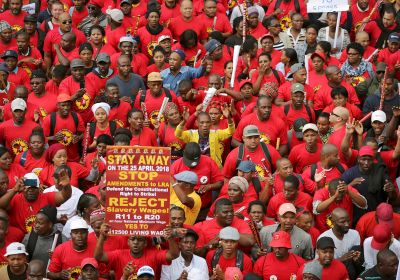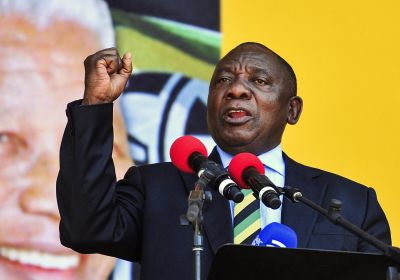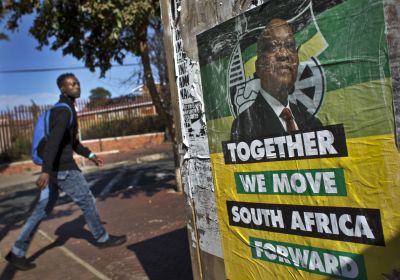
South African President Cyril Ramaphosa, who took office in February from Jacob Zuma, is facing a rebellion within the union movement over proposed changes to the labour laws.

South African President Cyril Ramaphosa, who took office in February from Jacob Zuma, is facing a rebellion within the union movement over proposed changes to the labour laws.

New South African President Cyril Ramaphosa made headlines when the ANC leader backed legal changes that could allow land reform to redistribute land from traditionally powerful white owners to the Black majority.
But this populist posture aside, the new administration is seeking to deepen pro-corporate neoliberalism and austerity.

Last week a conceptual barrier carefully constructed by South Africa’s elites since 2015 was suddenly cracked at the University of the Witwatersrand Great Hall, by two of the country’s leading economic personalities: Pravin Gordhan, who served as a pro-business finance minister for seven years until being sacked in March, and super-consultant Iraj Abedian, who in 1996 co-authored the country’s post-apartheid structural adjustment programme. Two more solid bourgeois representatives would be hard to find.

South African President Jacob Zuma’s recent cabinet reshuffle is nothing more and nothing less than the latest instalment of a long-running story of the capture of the African National Congress (ANC) and the post-1994 democratic state it has politically run.
It is but a consequence of a political, economic and social crisis that has been forged and fed by the ANC – and its Alliance partners, the South African Communist Party (SACP) and the Congress of South African Trade Unions (Cosatu) – as a whole, in conjunction with capital.
